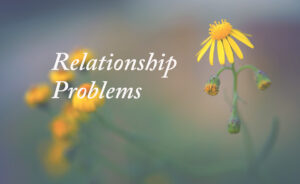Austerity ordinarily means being severe with oneself. It is considered as an equivalent of tapasya whereby one is harsh with oneself to the extent of inflicting suffering and pain. It is the path that leads towards asceticism with the eventual goal being to release the spirit from the bondage to bodily life.
But in the Mother’s Yoga, the goal is to prepare nature for higher and divine manifestation. Hence the purpose of austerity is not to stifle but purify, not to diminish or annul but to transform. Hence the principle of austerity here is to progressively refine, purify, uplift and surrender the instrumental personality entirely for use by the Divine for Her purposes.
Refining means ennobling human nature by bringing in it the touch of the soul, an inner beauty, selflessness, nobility, right use and self mastery, not being a slave but a master of nature, replacing excesses by moderation and balance
Purifying means removing the dross of mere seeking after pleasure, degrading movements, such as lust, fear, greed, jealousy, anger, ambition, vanity, pride, intoxications of the mind and body, etc through a cultivation of their opposites that is universal love, goodwill, faith, sincerity, peace, beauty, humility, to lead a balanced and harmonious life, not to waste energy uselessly in chatter and gossip but conserve and turn it towards the Divine through aspiration and service of the Divine, to speak only what helps the Divine Work and express true and beautiful things, to fill the thoughts and speech with the rhythms of truth, to avoid all seeking after pleasure and hankering after desires so that one discovers a quiet inner felicity and joy, to transform egoistic love with dependency, satisfaction of desires etc with a vast universal love that expects nothing in return but loves as one breathes, naturally, drawing its breath from the Divine.
This is in gist. Its essence is beautifully described by Sri Aurobindo in The Synthesis of Yoga thus under the chapter on Sacrifice.
‘The vulgar conception of sacrifice is an act of painful self-immolation, austere self-mortification, difficult self-effacement; this kind of sacrifice may go even as far as self-mutilation and self-torture. These things may be temporarily necessary in man’s hard endeavour to exceed his natural self; if the egoism in his nature is violent and obstinate, it has to be met sometimes by an answering strong internal repression and counterbalancing violence. But the Gita discourages any excess of violence done to oneself; for the self within is really the Godhead evolving, it is Krishna, it is the Divine; it has not to be troubled and tortured as the Titans of the world trouble and torture it, but to be increased, fostered, cherished, luminously opened to a divine light and strength and joy and wideness. It is not one’s self, but the band of the spirit’s inner enemies that we have to discourage, expel, slay upon the altar of the growth of the spirit; these can be ruthlessly excised, whose names are desire, wrath, inequality, greed, attachment to outward pleasures and pains, the cohort of usurping demons that are the cause of the soul’s errors and sufferings. These should be regarded not as part of oneself but as intruders and perverters of our self’s real and diviner nature; these have to be sacrificed in the harsher sense of the word, whatever pain in going they may throw by reflection on the consciousness of the seeker.
But the true essence of sacrifice is not self-immolation, it is self-giving; its object not self-effacement, but self-fulfilment; its method not self-mortification, but a greater life, not self-mutilation, but a transformation of our natural human parts into divine members, not self-torture, but a passage from a lesser satisfaction to a greater Ananda. There is only one thing painful in the beginning to a raw or turbid part of the surface nature; it is the indispensable discipline demanded, the denial necessary for the merging of the incomplete ego. But for that there can be a speedy and enormous compensation in the discovery of a real greater or ultimate completeness in others, in all things, in the cosmic oneness, in the freedom of the transcendent Self and Spirit, in the rapture of the touch of the Divine. Our sacrifice is not a giving without any return or any fruitful acceptance from the other side; it is an interchange between the embodied soul and conscious Nature in us and the eternal Spirit. For even though no return is demanded, yet there is the knowledge deep within us that a marvellous return is inevitable. The soul knows that it does not give itself to God in vain; claiming nothing, it yet receives the infinite riches of the divine Power and Presence.’
Affectionately,
Alok Da



